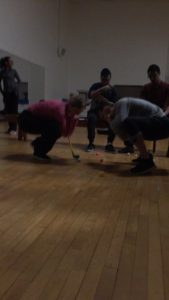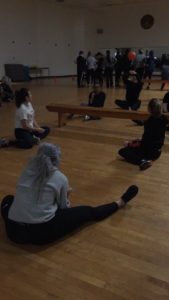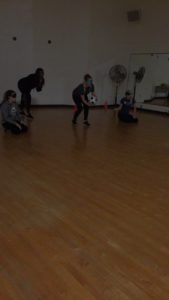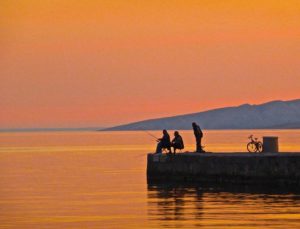“Give a man a fish and you feed him for a day. Teach a man to fish and you feed him for a lifetime.”

The proverb stated above encapsulates my vision of university education as a journey assisting students to attain and apply the knowledge they have learned. I want to be able to provide students with an education that enhances their knowledge and provides them with applicable skills, empowerment and ownership of their learning, and encouragement of their abilities and passion to be optimistic about their future careers. I seek to teach students for more than a day or for the time in which they are pursuing their education; I aspire to teach students knowledge and skills that last for a lifetime.

I learned from my mentors that students should be given opportunities to think on their own and that one way this can be accomplished is through assignments based on known issues from community organizations and research studies. As a student, I perceived conducting assessments in occupational settings as invaluable experiences to apply the knowledge I attained in the classroom or read in textbooks. It afforded me the opportunity to bring the concepts to life, gain an alternative perspective, and attain a more in depth understanding of how elements of the course would come together in a relevant, applicable manner. These experiences helped me formulate my passion, motivation and energy for teaching by illustrating the importance and fundamental elements of education through experienced based learning that I apply in my courses.
The application of their knowledge and their skills affords students the opportunity to learn to think critically, ask questions, develop reasoned thought, and appreciate the importance and diversity of what they have learned. My teaching practice emphasizes the provision of projects that can be completed as an individual and in group settings. To have projects represent current opportunities and challenges, I strive to involve community organizations and incorporate recently conducted research. I am passionate about teaching courses related to aging and other vulnerable populations. These courses focus on understanding the implications of the aging process or diseases and disabilities in general; the obstacles faced when performing activities of daily living, rehabilitation, work-life, physical activity, and sports; and how to assess and develop the abilities and modifications needed to enable each of these populations. As a nature of the population involved, visiting community organizations onsite can pose various obstacles. Thus, I like to incorporate simulation projects for which students where simulation suits and navigate the environment as a non-able bodied individual. Consequently, students are able to experience an abstract element of the aging process or vulnerable population through a concrete practice.



In addition to providing an application of knowledge, I believe the fundamental benefits of these assignments and the application of knowledge, provide opportunity for students to make connections through the development of an emotional link with or empathy for the populations they are studying. This is one approach I use to facilitate the learning process by providing an opportunity to broaden understanding from an alternative perspective or view, and to enhance the student experience.
Parallel to the topic of diversity in abilities of the populations I discuss in my courses, I recognize there is a diversity in the learning styles and application of knowledge among students. Thus, I feel it is important to provide various types of assignments from individual to group work, and projects that involve paper assignments, oral presentations, and video productions. I also offer a diversity of question formats on an exam (i.e. multiple choice, true or false, short answer, long answer).
I also believe it is important to allow students to provide feedback to me about my teaching approach and course development. I offer the opportunity for them to have a voice through questions on exams that ask: “what I enjoy about the course”; “what I would change about the course”. I also provide a mid-semester evaluation that affords them the opportunity to provide similar information in a written, and anonymous way. In one course, a suggestion was made by numerous students to incorporate a daily quiz; which I implemented the following semester. It is one example I provide to students when requesting feedback in an attempt to illustrate that I take their considerations seriously and will adopt them when and where possible. Allowing students the opportunity to provide feedback creates an avenue for them to have some ownership and autonomy of their learning experience and further develops my relationship with them.
Student feedback is a rich resource for me to understand how students would like to see the course continue to be revised. One of my personal teaching goals is to have directions for continual improvement in both my courses and my teaching approaches. I believe ongoing development through small revisions to my courses and approaches will help ensure I am meeting student needs and keeping my levels of engagement high. I will strive to challenge myself to adopt new and innovative teaching approaches throughout my career, and some of the inspiration may come from the feedback I receive from the students.
Teaching students how to fish is an expression of my desire to help encourage and awaken the minds of students to be passionate and inventive in facing all of what the future may hold, and thus ultimately providing them with a sense of purpose to enable and inspire their lives.

Pixabay